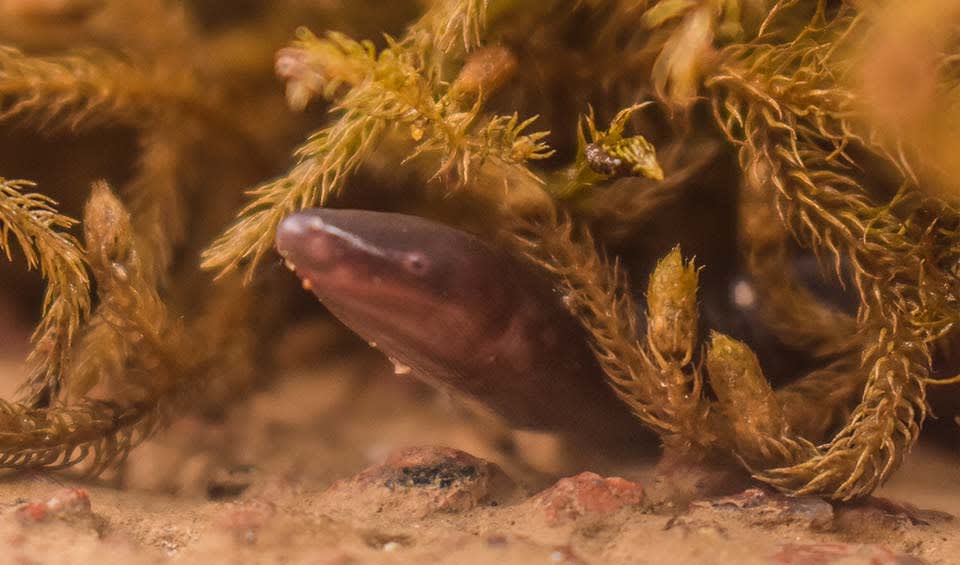Similar to other caecilians, the Frigate Island caecilian employs an egg-laying reproductive strategy. In this process, the female lays eggs, and she subsequently guards them until they hatch. This form of parental care is relatively rare among amphibians and underscores the Frigate Island Caecilian’s unique reproductive biology.
The daily life of caecilians, including those on Frigate Island, is marked by a combination of aquatic and subterranean activities. During the day, they can be found either swimming in rivers and streams or burrowing beneath the earth’s surface. These habitats offer them protection and suitable conditions for foraging and shelter.
In their subterranean existence, Frigate Island caecilians rely less on their visual and auditory senses. Instead, they have evolved specialized sensory tentacles located on either side of their heads, which play a vital role in their subterranean navigation and prey detection. These sensory tentacles are equipped with sensory receptors that enable them to detect chemical signals from their surroundings, enhancing their ability to locate prey and orient themselves underground.
As they feed, Frigate Island caecilians actively employ these sensory tentacles to explore their environment. Their acute senses of smell and taste play a crucial role in identifying chemical cues from various sources, allowing them to detect the presence of potential prey.
Distribution
 Seychelles
SeychellesAnything we've missed?
Help us improve this page by suggesting edits. Glory never dies!
Suggest an editGet to know me
Terrestrial / Aquatic
Altricial / Precocial
Polygamous / Monogamous
Dimorphic (size) / Monomorphic
Active: Diurnal / Nocturnal
Social behavior: Solitary / Pack / Herd
Diet: Carnivore / Herbivore / Omnivore / Piscivorous / Insectivore
Migratory: Yes / No
Domesticated: Yes / No
Dangerous: Yes / No




